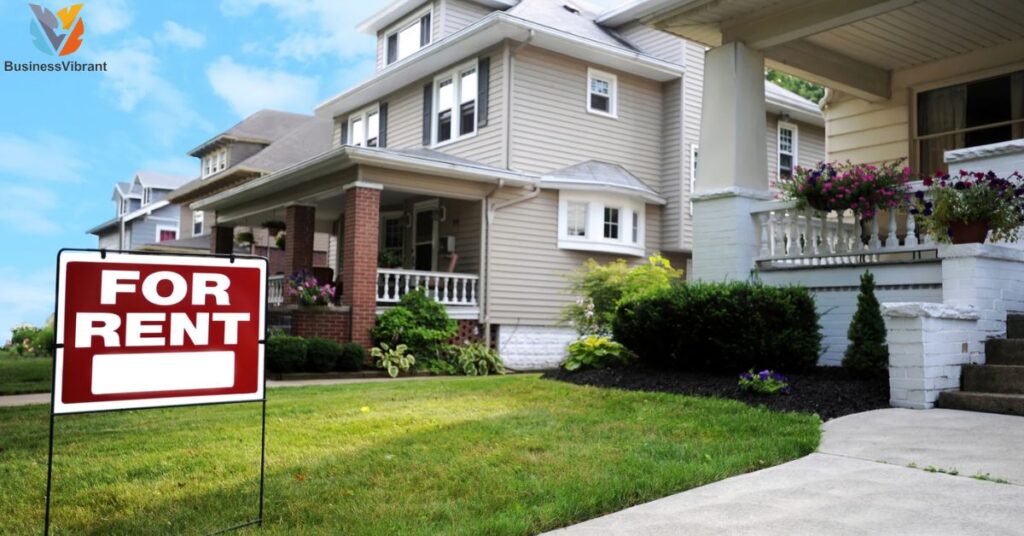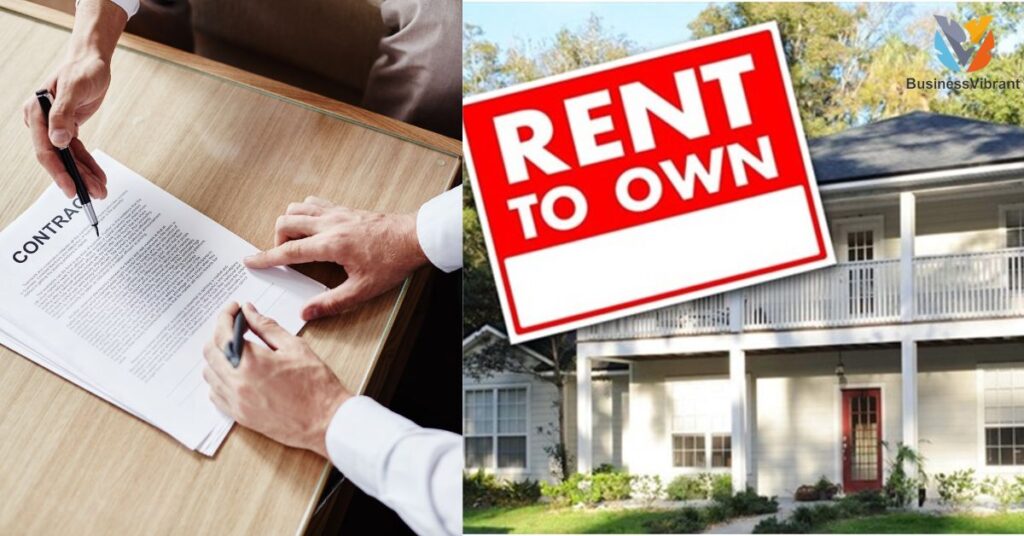A rent-to-own contract is a legal agreement where a tenant has the option to purchase the property they are renting after a certain period. Notarization is not always required for these contracts, but it can provide an extra layer of legal protection.
In other areas, it might not be mandatory. It’s crucial for both parties involved to understand the legal requirements in their jurisdiction and ensure the contract complies with them.
Notarization can offer added assurance and traceability, its necessity varies. Consulting with a legal expert can help clarify. Notarization is required for a specific rent-to-own agreement and ensure all parties protected under the law.
Table of Contents
What Is a Rent-To-Own Contract?
A rent-to-own contract, also known as a lease-option or lease-to-own agreement, allows a tenant to rent a property with the option to purchase it at a later date. This type of agreement typically involves two main components.
Imagine having the opportunity to rent a home while also having the option to buy it in the future. That’s precisely what a rent-to-own contract offers—a unique arrangement blending aspects of renting and home-ownership. A lease agreement that outlines the terms of renting the property but not the obligation.
In a rent-to-own contract, a portion of the rent payments go towards a down payment .This arrangement can be advantageous for tenants who may not qualify for a traditional mortgage or need time to improve their credit score.
What’s in the Lease or Rental Contract?
A lease or rental contract is a legal agreement between a landlord and tenant outlining the terms and conditions of renting a property. It serves as a formal document that governs the rights and responsibilities of both parties during the tenancy period.
The lease or rental contract typically includes essential details such as the duration of the lease, the monthly rent amount, and the security deposit required. It also outlines rules regarding occupancy, maintenance responsibilities, and any restrictions or prohibitions on activities within the rented premises.
Rent:
Rent is the payment made by a tenant to a landlord in exchange for the use and occupancy of a property. It is typically paid on a regular basis, often monthly, and serves as compensation for the right to live in the rented space.

The amount of rent can vary based on factors such as location, size, condition, and amenities of the property. Rental agreements may include other terms, such as utilities, maintenance responsibilities, and lease duration, which can influence the overall cost of renting a property.
Repair:
Repairs are tasks undertaken to fix or restore something that is damaged or malfunctioning. In a rental agreement, the responsibility for repairs is typically outlined, specifying whether it falls on the landlord or the tenant.
Effective communication between landlords and tenants is essential for prompt repairs. Tenants should report any issues promptly, while landlords are responsible for addressing them in a timely manner. This collaborative approach helps maintain the property’s condition and ensures a comfortable living environment for all parties involved.
Lease terms
Apart from the basic terms like rent amount and duration, lease agreements may include clauses regarding pets, subleasing, and utilities. These terms specify rules about bringing pets into the rental, subletting the property to others, and who is responsible for paying utility bills.
Landlords and tenants can negotiate and customize lease terms to fit their specific needs and preferences. This flexibility allows for agreements tailored to individual situations, ensuring clarity and fairness for both parties involved in the rental arrangement.
What to Do Before Signing a Rent-To-Own Contract?
Signing a Rent-To-Own contract, it’s crucial to thoroughly review the terms and conditions. Take your time to understand all aspects of the agreement, including the purchase price, rental duration, and the portion of rent going towards the eventual purchase.
Take advice from a real estate agent or lawyer specializing in rent-to-own agreements. They can provide valuable insights and ensure that the contract aligns with your best interests. Discussing the terms with the landlord can help clarify any uncertainties or negotiate favorable terms.
Seek your financial situation and long-term goals before committing to a Rent-To-Own contract. Assess factors such as your ability to afford the monthly payments, the condition of the property, and home-ownership aligns with your future plans. These steps can help you make an informed decision and avoid potential pitfalls down the road.
Related Content: Who Owns The Utility Poles On My Property? Revealed!
Pros and Cons of Rent-To-Own Contracts
Rent-to-own contracts offer potential home-ownership for those with limited financial resources or poor credit, providing time to build equity while renting.
Cons come with higher overall costs and stricter terms, and failure to complete the purchase could result in losing accrued equity and the initial option fee.
Pros and Cons for Tenants
Rent-to-own contracts offer the opportunity to lock in a purchase price, allowing tenants to build equity while renting and potentially secure a home despite financial limitations.
Tenants face higher monthly payments and risk losing their investment if they fail to complete the purchase, while also being responsible for maintenance and repairs during the rental period.
| Pros | Cons |
| Opportunity to build equity while renting | Higher overall costs |
| Potential pathway to home-ownership | Stricter terms |
| Option to lock in purchase price | Risk of losing accrued equity if unable to purchase |
| Flexibility to test property before committing | Limited control over property during rental period |
| May accommodate tenants with poor credit | Potential forfeiture of option fee if unable to purchase |
Pros and Cons for Landlords
A rent-to-own Contract can create a bit of uncertainty for a landlord, this concern is outweighed by the fact that if the tenant decides not to exercise the option, the landlord can keep the money that the tenant has paid for the option.
| Pros | Cons |
| Opportunity to build equity while renting | Higher overall costs |
| Potential pathway to home-ownership | Stricter terms |
| Option to lock in purchase price | Risk of losing accrued equity if unable to purchase |
| Flexibility to test property before committing | Limited control over property during rental period |
| May accommodate tenants with poor credit | Potential forfeiture of option fee if unable to purchase |
How to Find a Rent-To-Own Property?
Utilize online platforms like real estate websites and classified ads to search for rent-to-own properties in your desired location. These platforms often allow you to filter your search specifically for rent-to-own listings, making it easier to find suitable options.

Reach out to local real estate agents who specialize in rent-to-own properties. They can provide valuable insights into available listings in your area and assist you throughout the process, from finding a property to negotiating the terms of the rent-to-own agreement.
Spread the word among friends, family, and acquaintances that you’re looking for a rent-to-own property. Sometimes, opportunities arise through word of mouth or networking connections that may not be advertised publicly. Networking can also lead you to landlords who are open to rent-to-own arrangements but haven’t listed their properties online.
Related Content: Save Your House From Demolition In 2024: A Step-By-Step Guide
Consultation with Legal Experts
Before finalizing any rent-to-own agreement, it’s essential to seek advice from legal professionals specializing in real estate. These experts can review the contract to ensure it complies with local laws and protects your rights as a tenant or landlord.
They can also offer valuable guidance on potential risks and help clarify any confusing clauses in the agreement, ensuring a fair and legally sound arrangement for all parties involved.
Frequently Asked Questions
Do all rent-to-own contracts require notarization?
Not necessarily. The need for notarization depends on local laws and the specific terms of the contract.
What is the purpose of notarizing a rent-to-own contract?
Notarization adds an extra layer of legal protection and traceability to the agreement.
Should I get my rent-to-own contract notarized?
It’s advisable to consult with a legal expert to determine if notarization is necessary based on your location and the specifics of your contract.
Can a rent-to-own contract be valid without notarization?
Yes, a rent-to-own contract can still be legally binding even without notarization, but it’s recommended to ensure compliance with local laws.
How do I know if my rent-to-own contract needs notarization?
Seek guidance from a legal professional familiar with real estate law in your area to determine the requirements for notarization.
TechLeez offers a comprehensive suite of tech solutions designed to improve your business’s efficiency and security. Their commitment to customer satisfaction and cost-effective services makes them an ideal partner for your tech needs. Visit their website today to schedule a consultation and discover how TechLeez can elevate your business. With TechLeez at your side, success is just a click away.
Conclusion
Notarization of a rent-to-own contract may not always be mandatory, it can provide an extra layer of legal protection and enforce-ability. The necessity for notarization varies depending on local laws and the specifics of the agreement.
It’s essential for both landlords and tenants to understand the legal requirements in their jurisdiction before finalizing the contract. Consulting with a legal expert can offer clarity. Notarization is necessary and ensure that the agreement complies with all relevant regulations.
Regardless of notarization, ensuring that the terms of the rent-to-own contract are clear, fair, and mutually beneficial is paramount. Both parties should prioritize transparency and understanding to facilitate a smooth and successful rent-to-own arrangement, whether notarized or not.
